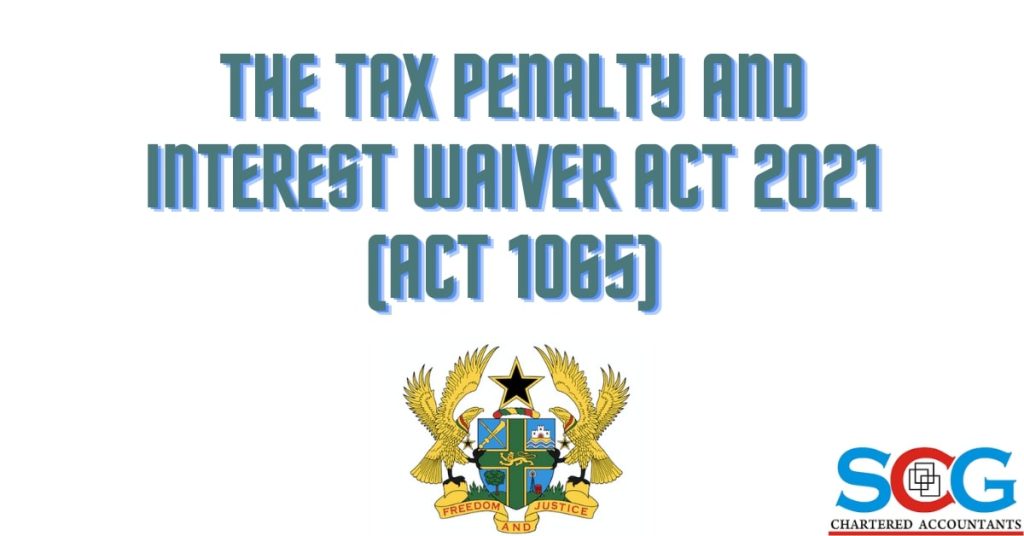On 31 March 2021, Parliament passed the Penalty and Interest Waiver Act 2021 (Act 1065) into law.
Before this, the tax laws gave the Commissioner the power to waive or remit penalties. It was not clear if this provision covered interests on outstanding taxes as well.
The Penalty and Interest Waiver Act 2021 has extended the Commissioners’ power to cover penalties and interest.
Which Periods Does the Waiver Cover?
The GRA will waive interest and penalties accrued in tax years up to 31 December 2020.
The condition for the waiver is that the company or individual should submit a return disclosing all previous liabilities up to 31 December 2020 and pay or plan to settle the outstanding payment by 30 September 2021.
It is important to note that:
- The waiver does not apply to returns and payment that are due for the tax year that starts from 1 January 2021.
- The Commissioner General may refuse to grant the waiver. If he does, he will communicate the reason for the refusal within 30 days.
- A taxpayer that is dissatisfied with the refusal may appeal to the Commissioner General within 30 days to review his decision.
- The Commissioner General shall within 30 days after receipt of the appeal decide and notify the applicant.
- A taxpayer who is not happy with the decision can pursue the matter in court.
Who Qualifies for the Waiver?
The penalty and interest waiver incentive applies to:
- Any company or individual that has not registered with GRA for tax.
- A company or individual that is registered with GRA but is not up to date with filings and payment of taxes.
How to Apply
To apply for the waiver you should
- Write to the GRA for the waiver. You must provide these details:
- Taxpayer’s details.
- Period in which the liability occurred.
- Outstanding taxes.
- Interests and penalties due thereon.
- Submit returns for previous years up to 31 December 2020.
Companies or individuals that wish to take advantage of the waiver must apply from 1stApril to 30 September 2021.
Way Forward
Should you be in arrears or have not submitted returns in the period covered, it might be worth taking advantage of the waiver.
For more blogs and information please follow SCG Chartered Accountants on Facebook, Twitter, Youtube and LinkedIn.

